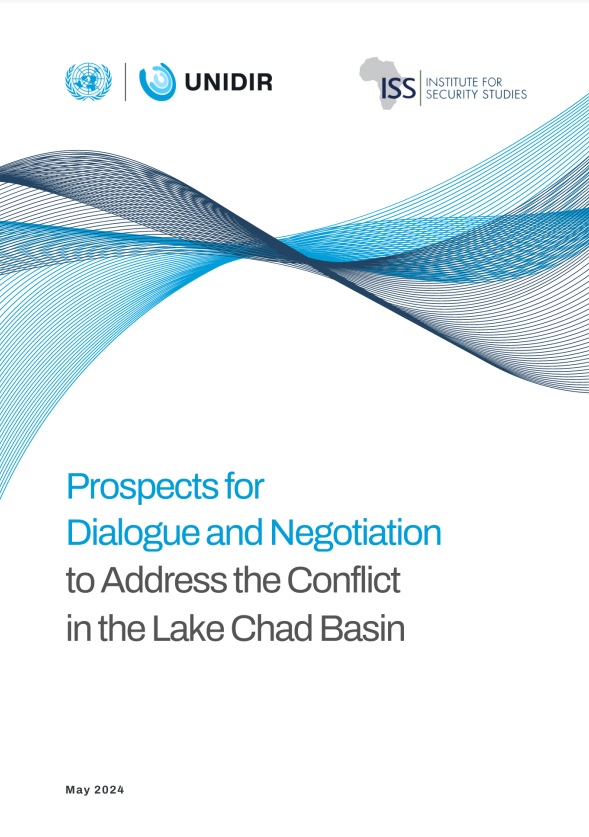This joint report explores under considered approaches to addressing the Boko Haram conflict in the Lake Chad Basin, namely the potential feasibility and utility of dialogue and negotiation to help bring an end to violence.
The report details extensive qualitative research undertaken in Nigeria, Chad, Niger, and Cameroon by UNIDIR and ISS from May – June 2023. It draws from key informant interviews and focus group discussions with military personnel, members of the Civilian Joint Task Force (CJTF) and other community security actors, former associates of Jamā'at Ahl as-Sunnah lid-Da'wah wa'l-Jihād (JAS) and of the Islamic State in West Africa Province (ISWAP), government officials and local leaders, staff of NGOs and civil society groups, and community members across the region, who all have interesting vantage points on counterterrorism policy and practice.
The report aims to contribute to a better understanding of the full range of tools that could potentially be employed – in combination - to bring about an end to the Boko Haram crisis. Findings highlight a range of key considerations related to dialogue and negotiations – and how different segments of local populations view them - which may be of use to policymakers and practitioners considering the utility of strategic messaging around defection, tactical negotiations, and ultimately, strategic negotiations to incentivize key units of or entire armed factions to demobilize.
Citation: Francesca Batault, Malik Samuel, Celestin Delanga with Mohammed Bukar, Fatima Yetcha Ajimi Badu, Fanna Abdu Muhammad, Fatima Ajimi, Sani Boubacar and Siobhan O’Neil. Prospects for Dialogue and Negotiation to Address the Conflict in the Lake Chad Basin, UNIDIR, Geneva, 2024: https://doi.org/10.37559/MEAC/24/03
